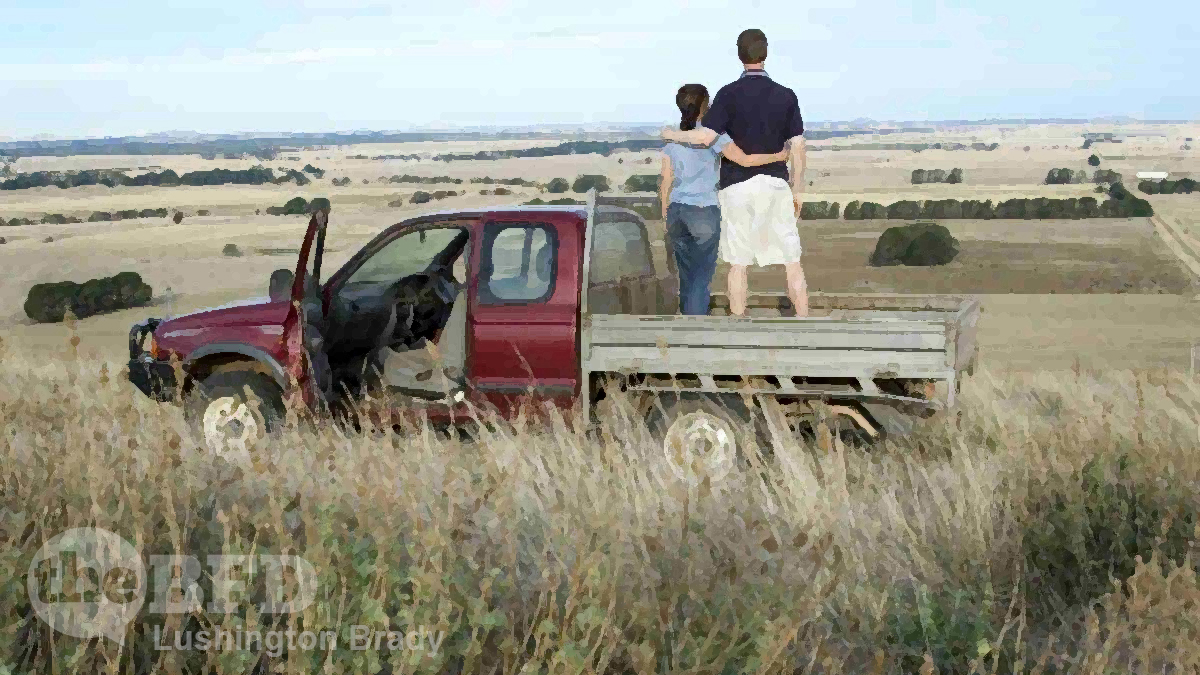As every ABC journalist knows, climate change is the biggest, most threatening thing, like, ever. We have just ten, no, five years to save the planet. No ABC journalist doubts this for a second. Cos, y’know, some scowling Swedish brat said so.
After all, everyone they know agrees.
And that’s the problem: ABC journalists don’t know anyone outside of the tiny circle of exclusive, inner-city Melbourne and Sydney suburbs where they live and where the chic ethnic cafes are.
Naturally, the ABC are shocked and discombobulated that people who live in rural areas aren’t living in constant terror of the Sky Dragon.
Australians in electorates that are generally more exposed to the impacts of climate change are less likely to demand more action, according to a comparison of survey results and climate risk data[…]
People in electorates threatened by the impacts of climate change — such as those in Queensland’s Sunshine Coast and Gold Coast — were less likely to say climate change is a threat, or demand government action.
How can this be? wails the ABC.
First, the dodgy “science”.
Karl Mallon, director of science and systems at Climate Risk, said the calculations “combine engineering data about buildings with weather data, climate change data, data about forests, soils, elevation, and height above sea level”.
“And that all goes into like a washing machine of computer code,” he said, and the computer spits out a raw figure: the climate risk.
Given that climate models – which is the so-called “climate change data” they’re referring to – are, to quote one modeller, “useless junk” for making predictions about the real world, why should we trust this “washing machine of computer code”?
Straight answer: we shouldn’t. And the people who live closest to the natural environment, not the inner cities, don’t.
It angles up, which points to something counter-intuitive: Australian electorates generally tend to be less likely to demand more action, as the climate risk within their electorate increases.
It’s not that counter-intuitive at all, when you understand the pea-and-shells game being pushed here. The “risk” is an entirely computer modelled artefact. This is not “data”, it’s wishful thinking.
The people in the “high risk” areas, on the other hand, live with the environment every day. They’re not about to be sold a line of bullshit so easily.
But not wanting more government action doesn’t necessarily mean a person is sceptical about climate change; they may simply doubt the government’s ability to mitigate the threat.
In other words, they know that ABC obsessions like “net zero emissions” are so much hooey.
Australians in rural areas are generally more exposed to the impacts of climate change, including extreme weather events and more frequent and severe natural disasters.
Yet according to the Australia Talks National Survey 2021, they’re also generally less likely to say climate change is a threat.
ABC Australia
The ABC can’t bring itself to think that maybe, just maybe, the folk on the land might have a better idea about what’s going on with the environment. Huh, what would they know? They don’t have a “washing machine of computer code”.
The ABC is even more astonished that the 2020 bushfires didn’t tip rural folk into placard-waving, Greta-worshipping climate alarmists.
It’s almost like we rural types are used to living with bushfires. Even more, we tend to nurse heretical notions such as thinking that environmentalists are far more to blame for bushfire threats than a mild fluctuation in the Earth’s climate that’s indistinguishable from any other natural variation.
Start thinking like that, though, and you might end up doubting that we have to spend billions and cripple our economy, in order to eliminate our 1.3% contribution of the 3% of atmospheric CO2 generated by humans.

Please share this article so that others can discover The BFD

